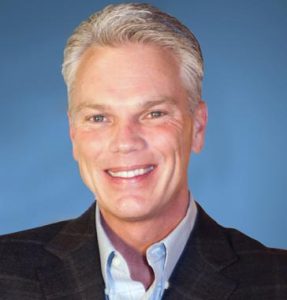 Intuit recently announced several changes in their top-level leadership, is this a good thing for QuickBooks? Time will tell.
Intuit recently announced several changes in their top-level leadership, is this a good thing for QuickBooks? Time will tell.
For many people, the biggest thing announced in the press release Intuit Announces Leadership Succession Plans was that Brad Smith will be stepping down (at the end of 2018) from his position of Chief Executive Officer of Intuit, a position he has held since January 2008. In those ten years he’s led the company from being primarily a provider of desktop tax and accounting software to being a leader (at least in the US) in cloud based tax and accounting services. You have to wonder, what will change as he steps down? And, since I’m focused on QuickBooks, what does this mean for Intuit’s accounting products?

Brad Smith
In my opinion, other changes in Intuit’s leadership are just as important as the CEO change, and that the changes bode well for QuickBooks. Here’s why (in no particular order):
- Brad Smith is stepping down as CEO, but he will still be highly involved as he continues to be Executive Chairman of Intuit’s Board of Directors. So he isn’t totally leaving.
- Sasan Goodarzi is moving up to replace Brad Smith as CEO. This is an internal appointment, moving an existing Intuit executive up, rather than bringing in someone from the outside . Goodarzi was general manager of the Small Business and Self Employed Group, which means he was directly involved with managing all things QuickBooks. This means that he has good, detailed knowledge of the QuickBooks environment (rather than taking someone who was focused on TurboTax, or from an outside company with no background in QuickBooks). Also, Goodarzi is just 50, so he has the opportunity to be in this position for a long time.
- Of equal importance is that Intuit announced the departure of Chief Technology Officer Tayloe Stansbury. I’ve never met Stansbury, but he oversaw some major technological shifts in the QuickBooks ecosystem. This includes things like the switch in emphasis from desktop to online, Intuit’s change from their own data center to using Amazon AWS, the major changes in how QuickBooks Online integrates with add-on products, the implementation of QuickBooks Self Employed, and much more.
- Marianna Tessel will take over from Stansbury as Chief Technology Officer. This is another internal appointment, and Tessel is someone who is very familiar with the QuickBooks product line. She was chief product development officer for the Small Business and Self-Employed Group (same group as Goodarzi), so again we have someone moving up into a higher management level that comes from a background with the QuickBooks environment, rather than the tax environment.
We can’t know how these changes will impact Intuit in the future, but I can’t help but believe that these Intuit leadership changes will help keep QuickBooks as a major focus for Intuit for years to come.
The biggest shock was David Leary. 21+ years with Intuit.
I hadn’t heard about David leaving. Not the kind of thing that Intuit would announce. However, over the years I’ve known quite a few “long term” Intuit employees who have left. And a number of those who eventually came back. That is the nature of business in Silicon Valley.
Thanks Charlie – Brad leaves the Company in a very strong position with no viable competition. Xero came into the US market four years (??) saying they would compete with Intuit for the SMB market in business accounting and finance, and all they did was wake up a lumbering giant.
Sasan is a strong leader and has the blessing of a revered CEO. The product line continues to add breadth and depth, almost like QuickBooks DT ( Ha Ha) . We’ll see where the next 5 years takes the market. Xero will continue to be a capable competitor; however the Intuit brand is 3 or 4 times as strong as it was when Xero arrived in the US.
I don’t see this change as a problem for Intuit, Peter. But I do wonder what (if any) changes in direction will come from this? Every CEO has his/her own ideas on where to go. Unfortunately, I no longer have an inside track as to what is going on at Intuit…